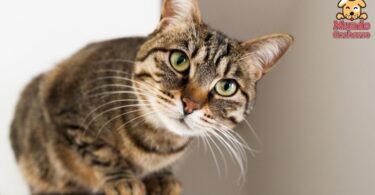A cat’s meowing is a common way for cats to express their different needs and their way of communicating, especially with humans. It is most common to hear a cat meow when it wants something from its caregivers and in fact, to communicate with each other they often use other ways.
Indice
Cats meow to communicate with humans
In this post we have prepared a series of reasons why your cat meows. Find out what they are and learn how to communicate more effectively with your kitty.
Reasons why your cat meows
A cat meows as a form of communication, mainly with humans and to a much lesser extent with other cats. Meowing is one of the most common ways cats express their needs, emotions and desires to people.
Here are some of the reasons why cats meow:
- Communication with humans: Cats often meow to get their owners’ attention. They may meow for food, petting, play or to signal that something is not right.
- Expression of needs: Cats may meow when they are hungry, thirsty, need to go to the bathroom or are seeking attention. The pitch and frequency of the meow may vary according to the specific need.
- Communication between cats: Cats also use meowing to communicate with each other. A typical example of this is how mother cats meow to call their young.
How to tell if your cat is a spoiled brat
- Expression of emotions: Cats may meow to express their emotions. For example, they may meow when they are anxious, frustrated, frightened or even happy.
- Pain or discomfort: If a cat meows suddenly and for no apparent reason, it could be a sign of pain or discomfort. In these cases, it is important to observe the cat closely and seek veterinary care if necessary. This may be accompanied by other symptoms such as lack of appetite and apathy.
- Territorialism: Cats may also meow as part of the defense of their territory. This is more common in non-sterilized cats during the breeding season.
5 signs that your cat is too dependent on you
- Learning: Some cats may learn that meowing allows them to get what they want, such as food or attention. If this behavior is reinforced, the cat may meow more frequently.
- Senility: In older cats, senility can sometimes lead to increased meowing, as they may feel disoriented or anxious.
Understanding the context
It is important to pay attention to your cat’s meow and try to understand its context. If a cat meows excessively or suddenly changes its meowing pattern, it may be a sign of an underlying problem, such as an illness or an unmet need. In these cases, it is advisable to consult a veterinarian or a specialist in feline behavior to evaluate the situation and take appropriate measures.
What is catnip and why do cats like it?
Remember that cats meow to express their emotions, from happiness to sadness. If they are happy, they will meow to show their joy. If they are sad, they will meow to express their sadness. Cats also meow for attention. If a cat wants its owner to pet it, it may meow to get his attention.
Image courtesy of https://pixabay.com, all rights reserved.







